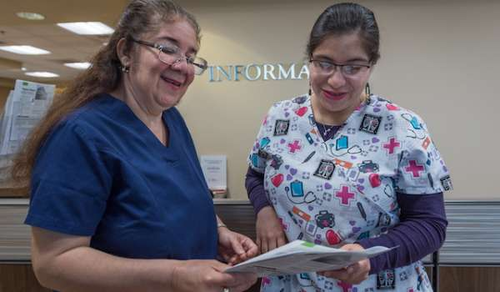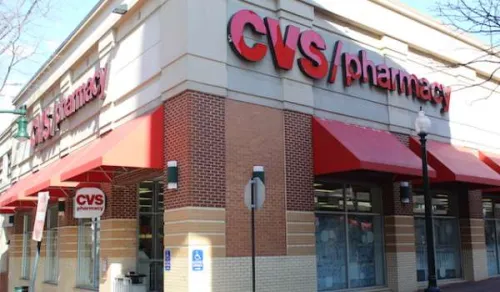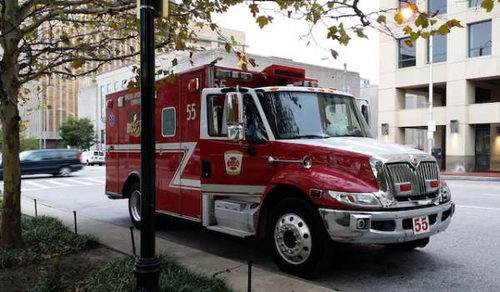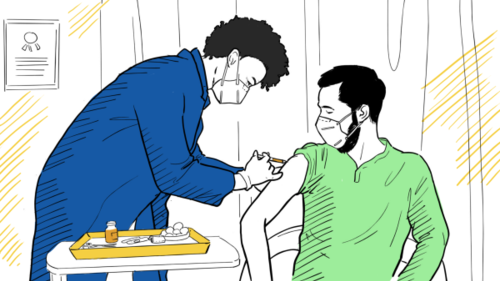Healthcare in the U.S.

Understanding Health Coverage in the United States
Accessing health care in the United States often depends on having health insurance, which helps pay for medical costs. There are several types of health coverage:
Medicaid: A government program that provides free or low-cost health insurance for people with low income, including some refugees and newcomers. Eligibility varies by state.
Employer Provided Insurance: Many jobs offer health insurance as a benefit. You may need to pay part of the cost through your paycheck.
Marketplace Insurance: If you don't qualify for Medicaid and don't have insurance through a job, you can buy insurance through the Health Insurance Marketplace. Financial help may be available based on your income.
Healthcare Providers
There are several different types of healthcare providers in the United States. Here are some common healthcare providers:
Public Health Departments provide immunizations against diseases and offer other preventive health services, including testing and treatment for tuberculosis. Preventive health services are services that prevent diseases before they happen. An appointment is usually necessary.
Community Clinics and Health Centers provide basic health services and health counseling. Some also provide dental care and eye examinations. Some clinics in cities treat specific types of patients, such as pregnant women or people with HIV/AIDS. Clinics accept private insurance and Medicaid (government insurance for people with low-income), and many charge fees based on the patient’s ability to pay.
Private Doctors are either general practitioners or specialists. General practitioners provide general healthcare, including annual checkups. Specialists work in one area of medicine. Some specialists treat certain groups, such as women or children. Others specialize in one part or system of the body, such as the heart, the eyes, or the feet. You need an appointment to see a private doctor. Before you see a private doctor, you usually have to show that you can pay for the service or that you have insurance.
Hospitals are for patients with special problems who need tests and surgery. Normally your doctor will refer you to a hospital or you will be admitted after an emergency room visit. Hospital care is expensive, and you may be asked to show that you can pay for the service or that you have insurance before being admitted. However, emergency rooms at hospitals cannot turn you away for inability to pay.
Emergency Rooms are for sudden and serious health problems. You do not need an appointment to go to the emergency room, but they are busy places and you may have to wait a long time if your problem is not serious. Emergency room care is very expensive. If your problem is not an emergency, you should make an appointment at a clinic or doctor’s office.
Urgent Care Clinics are available in some communities. These clinics are for situations where you have an illness or injury that needs immediate care, but is not serious enough for a visit to the emergency room. You do not need an appointment.


Your Healthcare Rights
In the United States, you have two important healthcare rights. You have the right to interpreter services and you have the right to confidentiality. Tell the hospital or clinic staff that you need an interpreter when you make the appointment or arrive for emergency care. Everything that takes place between you and your healthcare provider is confidential under the law. Your healthcare provider cannot tell your family, your friends, or your employer about your health situation without your permission.

American Concepts of Health
Most Americans see a doctor once a year for a checkup so that they will know about any health problems before they become serious. They go to the dentist twice a year to have their teeth cleaned to prevent serious problems with their teeth. Americans believe that many illnesses can be prevented through cleanliness, proper nutrition, exercise, and adequate sleep.
Cleanliness and Personal Hygiene
Most Americans bathe or shower every day, brush their teeth twice a day, shampoo their hair often, apply deodorant once a day, and wash their clothes frequently. Stores sell many kinds of products that help people avoid appearing dirty or having any odor of sweat. Personal hygiene can be especially important for getting and keeping a job.
Proper Nutrition
Proper nutrition means eating the right kinds of foods to keep the body healthy. It also means limiting foods that can cause health problems and serious illnesses if they are eaten often and in large amounts. Such foods include those that are high in sugar, salt, or fat (e.g., fried foods, sweets, and sodas).
Mental Health Care
Americans believe that mental health is as important as physical health. Mental health refers to how you feel, think, and behave as you cope with life. It also refers to how you handle stress. Good health care includes treatment by a mental health professional when it is needed. If you ever feel that life is too hard and you cannot cope with everyday activities, you should seek mental health services.
Frequently Asked Questions
Some newcomers admitted to the United States will receive some form of health insurance paid by the government after arrival. Coverage varies by location and eligibility criteria. While this health insurance may pay for critical health needs, it may not include dental or eye care. You are encouraged to find employment shortly after arrival in order to access private health insurance offered at a cost through your employer. If you have a disability or are over the age of 65, the United States government will provide health insurance at no cost to you.
The laws of the United States protect and help people with disabilities. Health insurance and cash assistance for disabled people is available and newcomers may be able to apply for these benefits after they arrive.
